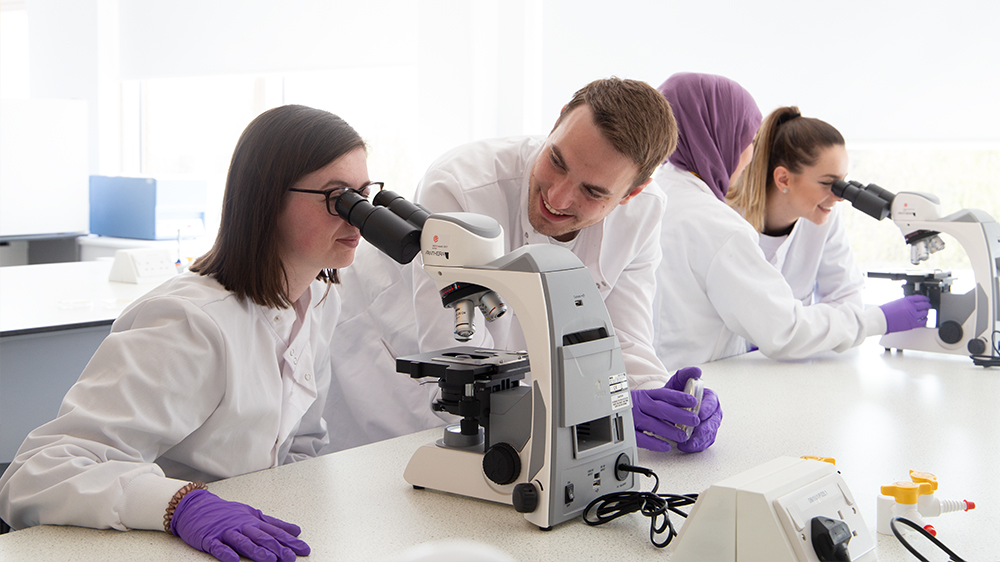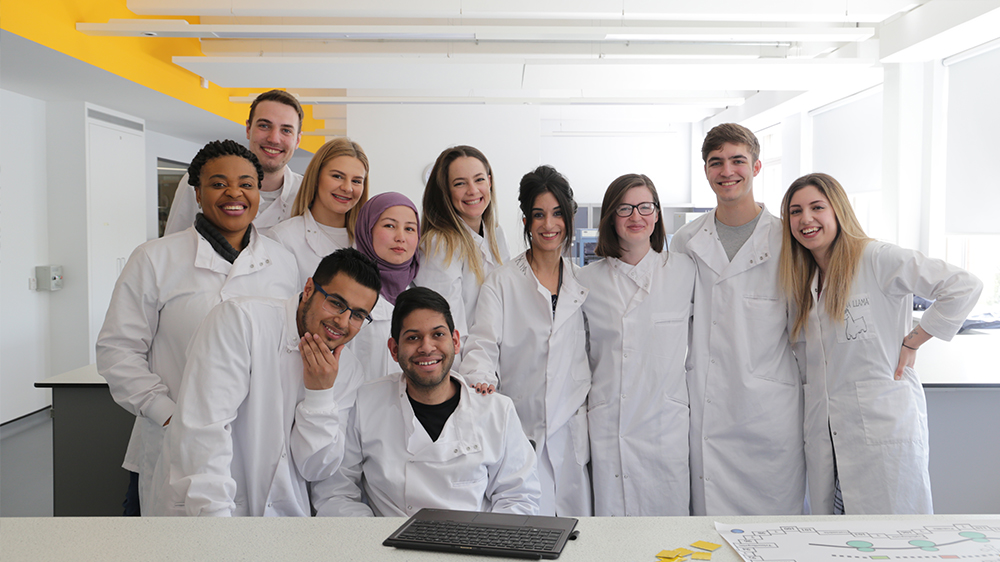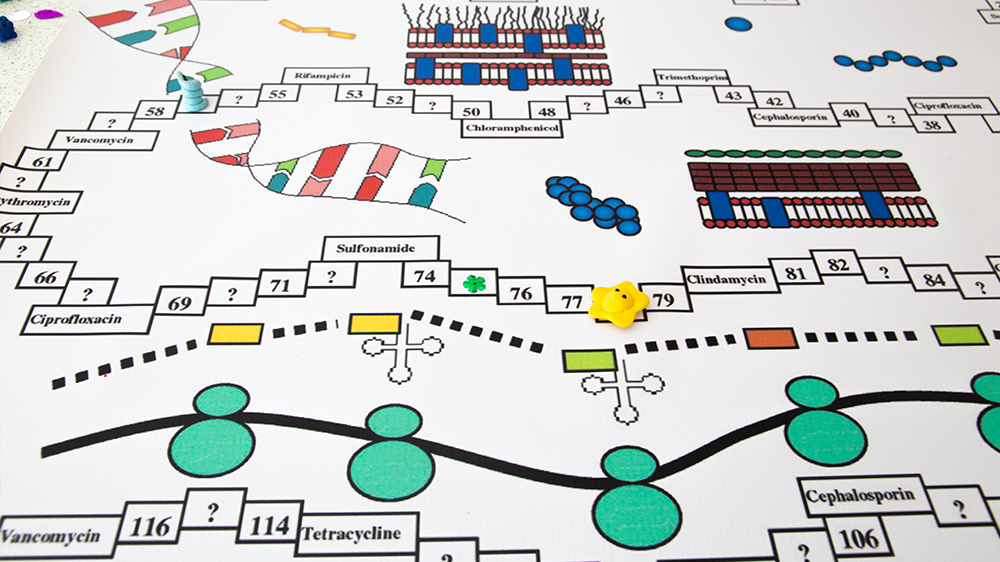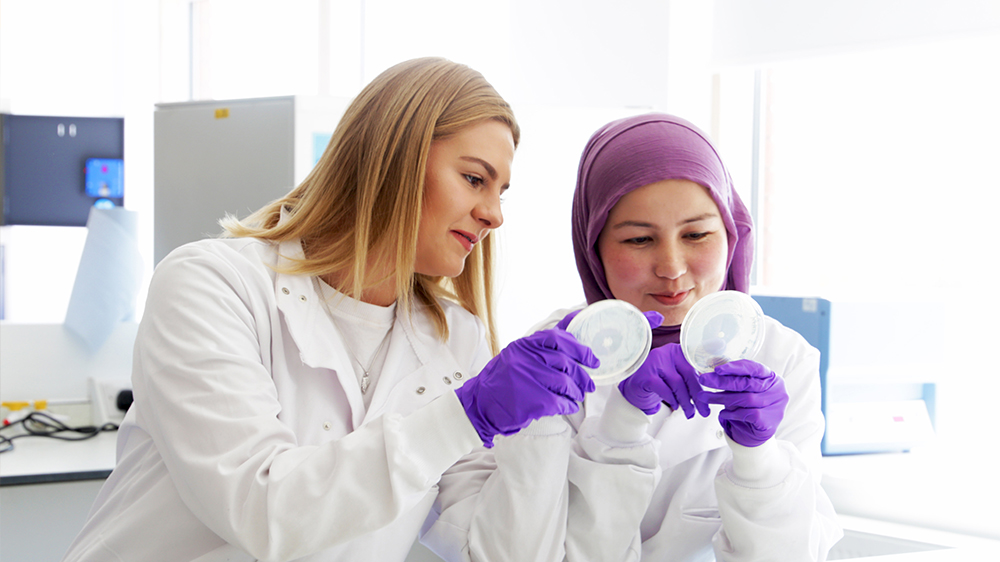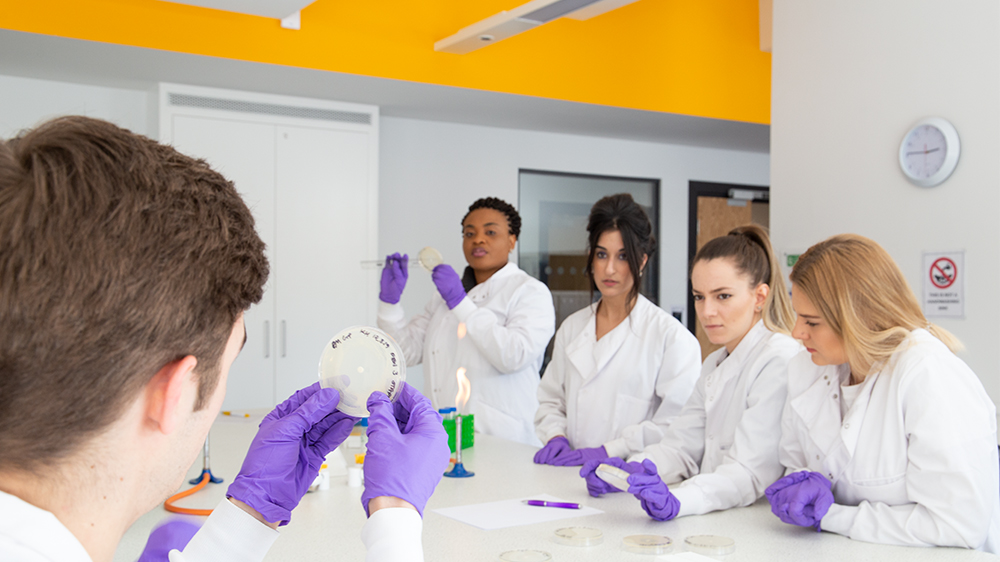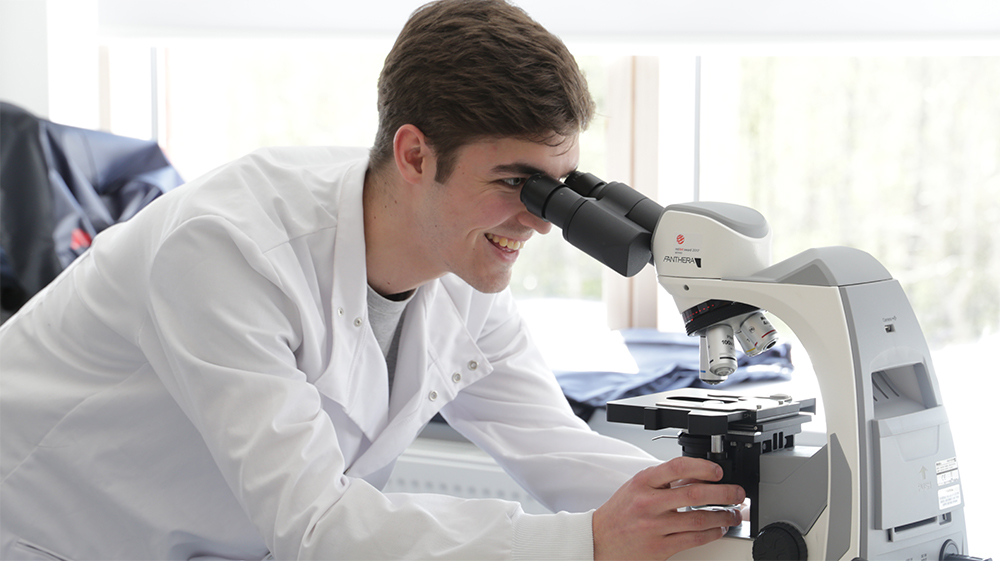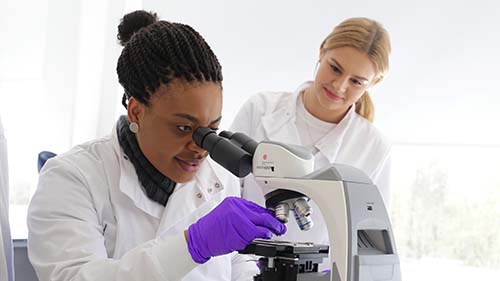Search
Applied Biosciences Foundation Year
Study level: Foundation year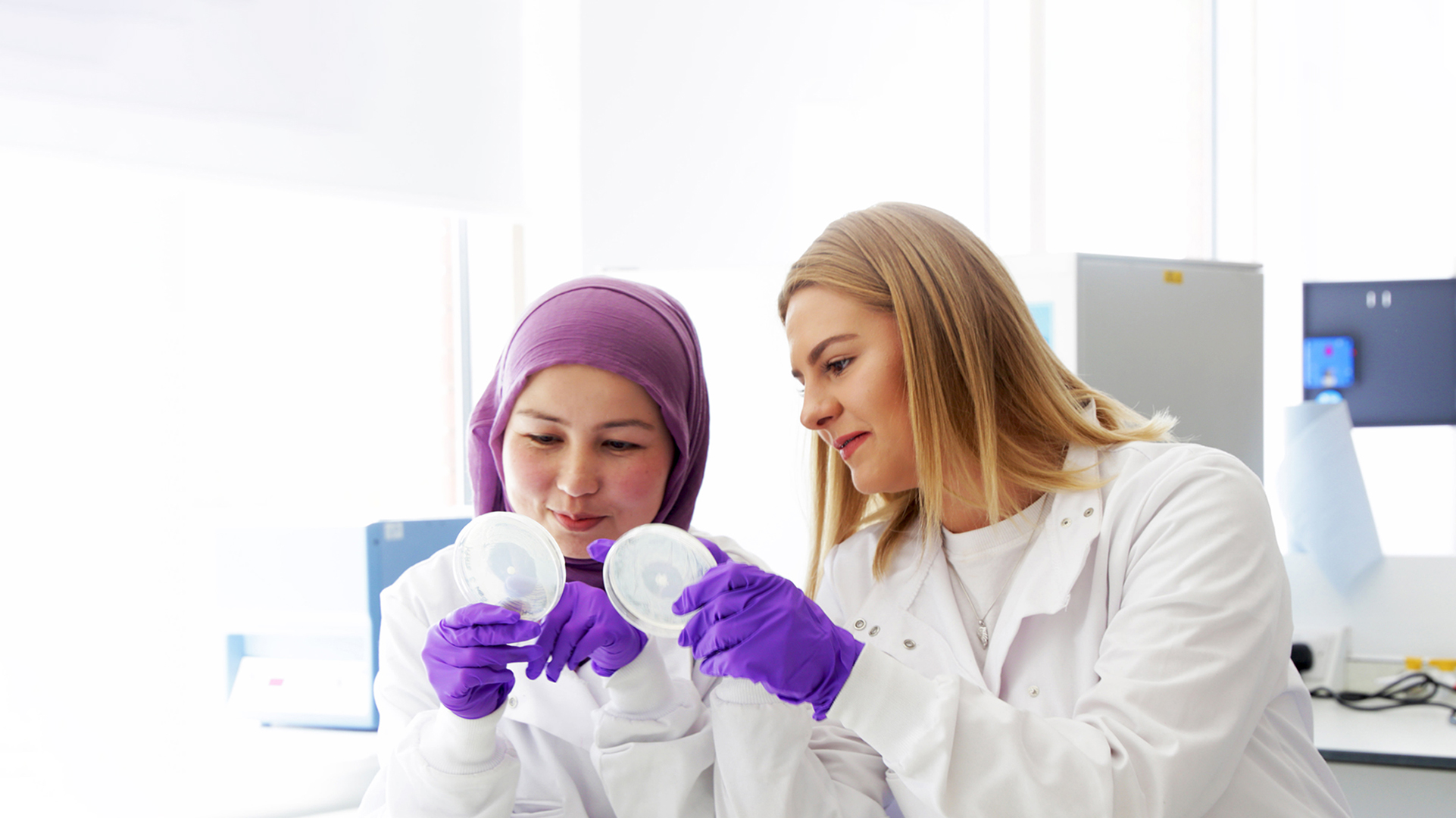
The Applied Biosciences foundation year course offers an introduction to your chosen subject and helps you develop the necessary skills for degree-level study.
Course features
Year of entry
Location
CU Coventry (Coventry)
Study mode
Full-time
Duration
1 year full-time
Course code
FC31
Start date
September 2025
The information on this page is for 2024-25 entry and should be used as guidance for 2025-26 entry. Please keep checking back on this course page to see our latest updates.
Course overview
Essential academic skills are embedded into all the work to support future learning.
This course is also useful if you have the academic ability to succeed at degree-level study, but do not have the appropriate subject background knowledge. Successful completion of all modules in this course means you could progress onto year one of your undergradaute degree.
Why you should study this course
The Applied Biosciences foundation year:
- Supports you to gain the academic skills required for degree-level study
- Provides a grounding in key areas of biosciences
We aim to provide the skills and knowledge relevant for successful progression onto a degree in bioscience, health or care subjects. It also sets a foundation for your journey to employment, creating opportunities for professional and academic development.
How can we help?
Chat with an advisor now or leave a message and we'll get back to you as soon as we can.
What you'll study
We regularly review our course content, to make it relevant and current for the benefit of our students. For these reasons, course modules may be updated.
How you'll learn
At CU Coventry, you will learn through a variety of modes.
The foundation year programme is focused on applied learning geared to high intensity teaching and study throughout the programme, requiring full commitment from students. The delivery of course content is a blend of lectures, tutorials and online mediums.
Unlike traditional institutions, there are no end of year exams. Instead, learning is assessed through coursework, which is more reflective of a working environment.
Teaching contact hours
If you choose to study full-time you can expect up to 20 hours of learning activities per week, made up of face-to-face teaching, individual and group tutorials, online classes and independent learning.
Additionally, you will be expected to undertake significant self-directed study of approximately 30 hours each week, depending on the demands of individual modules.
As an innovative and enterprising institution, the university may seek to utilise emerging technologies within the student experience. For all courses (whether on-campus, blended, or distance learning), the university may deliver certain contact hours and assessments via online technologies and methods.
Since COVID-19, we have delivered our courses in a variety of forms, in line with public authority guidance, decisions, or orders and we will continue to adapt our delivery as appropriate. Whether on campus or online, our key priority is staff and student safety.
Assessment
The learning outcomes of modules, assignments and projects will be clearly stated. Your work will be marked according to how well you achieve these learning outcomes and your final feedback will refer to each outcome, as well as providing an overall percentage grade.
Assessment methods vary and include practical class and project performance, written practical reports, project thesis, oral presentations, tutorial tasks and assessments.
Course Breakdown:
- Coursework
The Coventry University Group assessment strategy ensures that our courses are fairly assessed and allows us to monitor student progression towards achieving the intended learning outcomes.
International experience opportunities
All students may have the opportunity to attend international visits2 with academic or industry collaborative partners. Furthermore, a number of modules across the course have collaborative online international learning (COIL) projects embedded within them, allowing students to gain valuable experience working with peers, both at Coventry University and global partner institutions.
Entry requirements
Typical offer for 2024/25 entry.
Fees and funding
| Student | Full-time | Part-time |
|---|---|---|
| UK | 2025/26 fees TBC* 2024/25 fees-£7,950 per year |
Not available |
| International | 2025/26 fees TBC* 2024/25 fees -£18,300 per year |
Not available |
For advice and guidance on tuition fees and student loans visit our Fees and funding page and see the university’s Tuition Fee and Refund Terms and Conditions.
The University will charge the tuition fees that are stated in the above table for the first Academic Year of study. The University will review tuition fees each year. For UK (home) students, if Parliament permits an increase in tuition fees, the university may increase fees for each subsequent year of study in line with any such changes. Note that any increase is expected to be in line with inflation.
For international students, we may increase fees each year, but such increases will be no more than 5% above inflation. If you defer your course start date or have to extend your studies beyond the normal duration of the course (e.g. to repeat a year or resit examinations) the University reserves the right to charge you fees at a higher rate and/or in accordance with any legislative changes during the additional period of study.
We offer a range of international scholarships to students all over the world. For more information, visit our international scholarships page.
Tuition fees cover the cost of your teaching, assessments, facilities and support services. There may be additional costs not covered by this fee such as accommodation and living costs, recommended reading books, stationery, printing and re-assessments should you need them.
The following are additional costs not included in the tuition fees:
- Any optional overseas field trips or visits: £400+ per trip.
- Any costs associated with securing, attending or completing a placement (whether in the UK or abroad).
In order to receive funding for degree with foundation courses, you will need to complete a 4-year Degree programme which includes the integrated foundation year. If you study a standalone foundation year, you may be responsible for your foundation year fees. For further information refer to the 'Foundation Year Funding' section.
Facilities
All our facilities4 are located at Mile Lane. Our building has been designed to enable collaboration, creativity and innovation to flourish, and includes (subject to availability):
- Indoor and outdoor social spaces, including a café
- A library that includes loan laptops, over 115,000 eBooks and a silent study area
- Open access IT suites and 83-inch teaching screens
- Engineering lab, science lab and a moot courtroom
- Student support and careers advice teams
Careers and opportunities
On successful completion, you should have knowledge of:
- Relevant theories and concepts of the appropriate scientific disciplines studied in biosciences and chemistry.
- Health and safety regulations applicable to a laboratory environment.
- Practical laboratory principles and techniques relevant to an undergraduate degree in health and life sciences or related workplace.
- How information technology is used in the workplace and contributes to the study and advancement of health and life sciences.
- The principles of independent and self-managed learning.
- The principles of academic research skills to apply critical and detailed thinking.
The strength of the course lies in preparing students for further study, cementing the core principles of health and science ready to expand on this knowledge at degree level.
